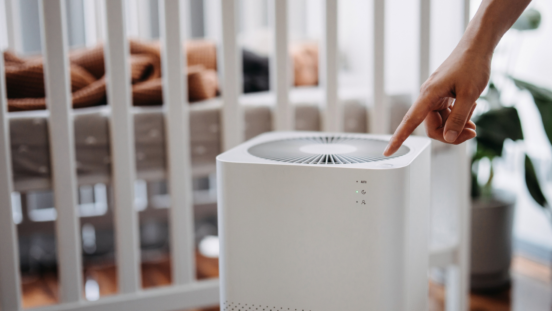Meningococcal tragedy: A QLD family mourn the loss of their little boy who contracted the deadly disease this week
Their tight-knit community has raised over $14k for the family via GoFundMe.
It’s lethal, fast moving, and, in the early stages, almost impossible to distinguish from a cold or virus.
Meningococcal disease is a much feared bacterial infection which can cause meningitis, blood poisoning or both and for one family from Mackay, QLD the worst possible scenario has played out as they mourn the loss of their little boy, Noah, who contracted Meningococcal this week.
The tight-knit community rallied, raising over $14k for the family of the “beautiful little boy” by launching a GoFundMe campaign, which raised the money to go towards Noah’s funeral service in just a matter of days.
The tragic event comes after an urgent warning was issued about the presence of the deadly illness in the community.

“Beautiful liitle Noah, from Mackay in Central Queensland, succumbed to the deadly illness this week.
Health authorities, on Tuesday announced a positive case of the deadly disease had been recorded in Mackay, QLD.
Currently it is peak season for meningococcal disease and parents with young children are being urged to familiarise themselves with the symptoms, check their child’s vaccinations are up to date and act quickly if they suspect the illness.

Health authorities, on Tuesday announced a positive case of the deadly disease had been recorded in Mackay, QLD.
Mackay Daily Mercury reported that the community rallying was spearheaded by the North Mackay Saints Football Club.
“As you may or may not know by now, one of our own, Jenna, unexpectedly lost her beautiful little boy Noah recently,” the page read.
“I was hoping we could rally together to raise some money to help ease this painful time for Jenna, Mark and the family. As our motto says, strength through loyalty and we are lucky enough to have power in numbers as a club to help Jen and her family through this heartbreaking time.”
The fund-raising campaign was put on hold when the final sum of $14,592 was raised in just three days.
“What began as something for just our small, close Saints Football club has gained more momentum than I ever imagined and we have more than achieved our goal and I know Jenna is beyond grateful for the support,” the page now says.
People of all ages can get this serious illness, but adolescents and children up to the age of five are at highest risk of the condition. And while meningococcal is seen all year, the peak time is now – winter and spring.
Meningococcal disease is a very serious infection that can cause severe scarring, loss of limbs, brain damage and death.
Vaccination is a safe and effective way to protect yourself from meningococcal disease.
Meningococcal disease is most commonly caused by types A, B, C, W and Y. Vaccines can protect against all these types, but different vaccines protect against different types. No single vaccine protects against all types.
Paediatrician Dr Jenny Royle says the keys to fighting this rare, but serious infection are timely vaccinations and keeping a close eye on children who are unwell.
“The existence of that germ, type B, is why families need to know about meningococcal disease, and be vigilant about it,” says Dr Royle, who works with the immunisation service at Melbourne’s Royal Children’s Hospital.
“The difficulty is that when the meningococcal germ becomes generalised in the blood stream, it has a very fast, sinister action, and that’s why you can very quickly die before anyone has even known what you’ve got.”

Meningococcal disease is a very serious infection that can cause severe scarring, loss of limbs, brain damage and death.
What is meningococcal disease?
This is an infection with the meningococcal bacteria which can cause inflammation of the lining of the brain, which is called meningitis, or an infection in the blood, septicaemia and sometimes both.
Three main bacteria can cause meningitis: meningococcal, pneumococcal and Haemophilus influenza type b (Hib). Vaccines are available for Hib, for the common strains of pneumococcal and for meningococcal B and C. Viruses can also cause meningitis.
The meningococcal bacteria are spread through droplets from the nose or throat through sneezing or coughing.
It’s treated with antibiotics but even with urgent attention, about 10 percent of those with the illness die. Others can be left with a permanent brain injury and deafness.
Signs and symptoms
Parents have been made well aware of the red rash associated with meningococcal disease – it’s the one which doesn’t fade when pressed with a glass. Even though it’s an important symptom of the illness, it often means the illness is already well underway.
“It’s a good sign of meningococcal disease, but you’d also like to pick it up before you get that rash,” says Dr Royle.
Other signs to look out for include fever, irritability, extreme tiredness, vomiting, turning away from the light and drowsiness.
“In young babies it’s good to have a low index of suspicion with an unwell child with a fever,” says Dr Royle.
“Parental worry about children is often very helpful and accurate. If you’ve been to the doctor and sent home, and your baby’s getting worse, or not getting better, parents should act on their own sense of worry and get the child re-checked.”
It’s also crucial to make sure vaccines are given on time, not delayed, or the consequences can be tragic.
“You don’t want to have your vaccines late, you want to get them as soon as they are due… that’s really the best thing you can do for preventing meningitis. We have seen cases in families who delayed, and that is really bad.”
Meningococcal vaccine facts
- Anyone who wants to protect themselves against meningococcal disease can talk to their doctor about getting immunised. Anyone wishing to reduce their risk of meningococcal disease can be offered vaccination with meningococcal B and meningococcal ACWY from as early as 6 weeks of age. Common side effects from immunisations are usually mild and temporary, and do not require specific treatment.
- The duration of protection is uncertain but hopefully life-long.
- Vaccines covered by the NIP are free for people who are eligible. See the NIP Schedule to find out which vaccines you or people in your family are eligible to receive.
Side effects from these vaccines are uncommon and are usually mild, but may include:
- Localised pain, redness and swelling at the injection site
- Occasionally, an injection-site lump (nodule) that may last many weeks, but treatment is not needed
- Low-grade temperature (fever)
- Loss of appetite
- Children can be unsettled, irritable, may cry, or be generally unhappy, drowsy and tired.




